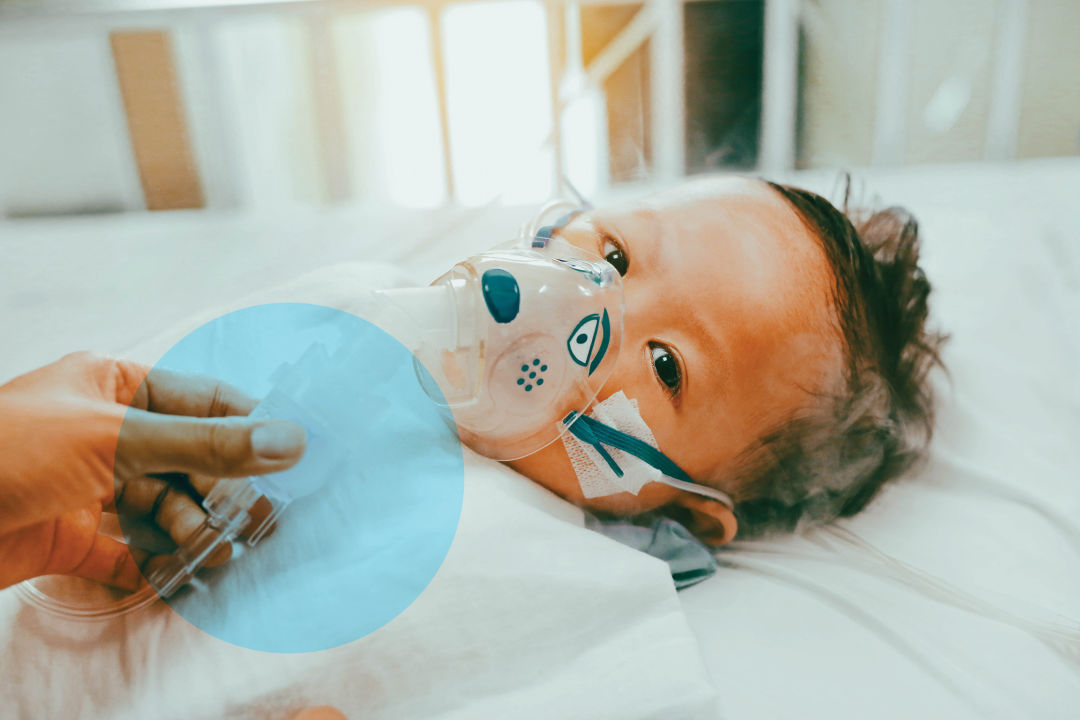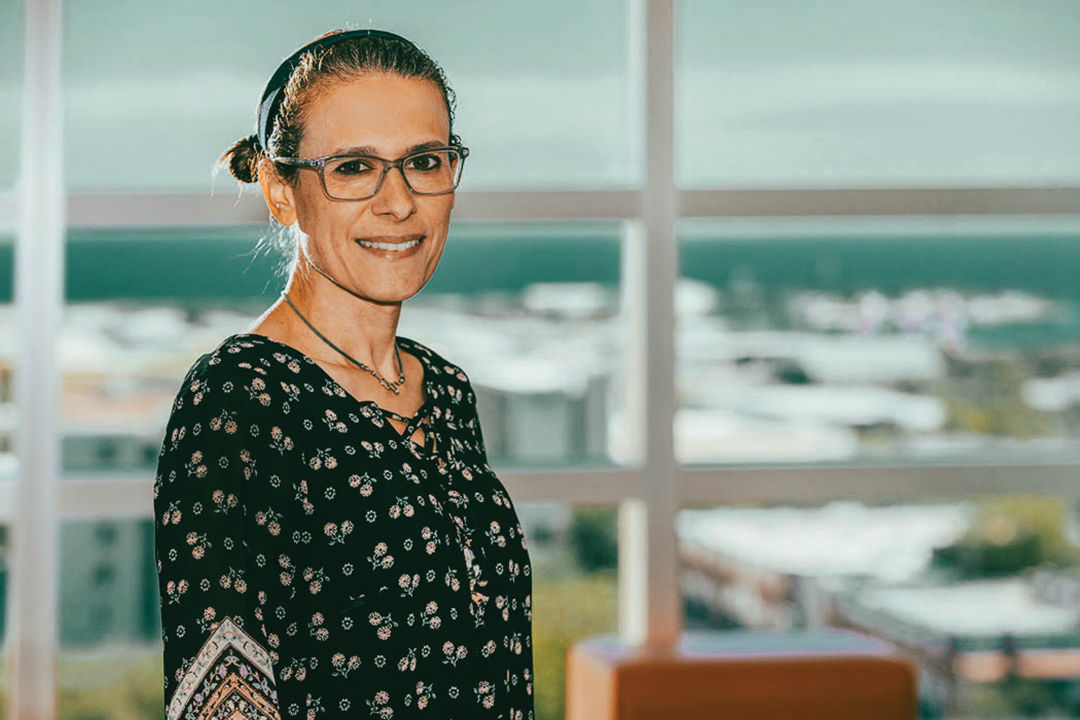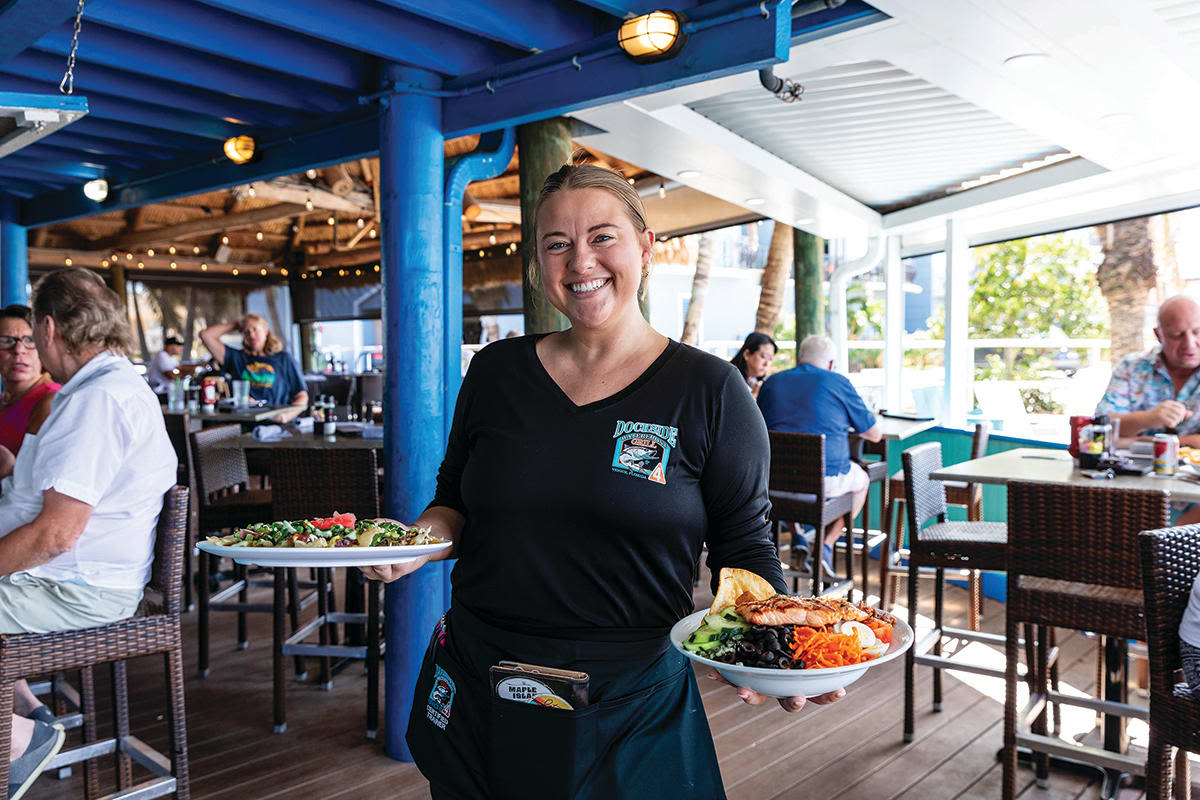How Worried Should We Be About RSV?

It's customary to expect the spread of viruses as the holiday season approaches and Americans make their way across the country to see family and friends. But this year, there is acute concern for a virus that afflicts young babies. Respiratory syncytial virus (RSV) is overwhelming pediatric units, with no end in sight. According to the CDC, throughout the U.S., nearly one in every 500 babies under the age of 6 months was hospitalized with RSV in October alone.
Statewide, all of Florida, with the exception of the panhandle, is in RSV season—and with a RSV season that lasts much longer than the rest of the country, concerns are amplified for any intensification of infection rates. According to the Florida Department of Health, the percentage of emergency department visits for RSV among children under 5 years has increased—and, in fact, is notably above levels observed at this time in typical years. The CDC notes that infants under six months of age are especially at risk for hospitalization, but any child under five with other health issues could become hospitalized.
But how is RSV affecting the Sarasota area? We spoke with Dr. Allison Messina, the chair of the Division of Infectious Disease and medical director of Infection Prevention at Johns Hopkins All Children’s Hospital, to find out more.
The following interview was edited for length and clarity.

Dr. Allison Messina is the chair of the Division of Infectious Disease and medical director of Infection Prevention at Johns Hopkins All Children’s Hospital.
What is RSV?
"RSV is a virus that attacks the respiratory tracts. It is of particular concern because it can cause severe disease in young babies. Typically, when an older person or child gets RSV, they experience something close to a really bad cold. But in babies, it can cause swelling in the lower airways, the bronchioles, and it can cause difficulty breathing. It’s a particularly bad disease for young babies."
RSV is not new. Why is this year’s RSV particularly bad?
"Historically, RSV is typically a winter time disease. Before the Covid pandemic, we used to see increased RSV rates starting in November; it would usually peter out in March. Every year since the pandemic, the RSV season in our region has become much more unpredictable. This year, RSV cases started to arrive in May and have been high ever since, which is unusual. I don’t think we have the worst RSV rates in the country. In the northeast, they are getting hit particularly hard."
Is there an explanation for the elongated season? Does it have to do with demographics and lifestyle?
"All we know is since the pandemic has come round, the seasons are much more unpredictable here. I don’t think there is a good reason.
"The more time you spend indoors gathering with other folks, the more you can increase the transmission of this virus. The hard thing to predict is how much worse this is going to get for us. We are seeing high rates right now. The big question on all of our minds—is it going to get higher still? Or are we going to continue with this steadily higher rate? I honestly don’t know the answer to that question."
Do RSV, influenza and Covid affect each other?
"The flu doesn’t contribute to RSV. But the flu and RSV and even Covid cause a lot of illness. Those kids all come through our doors when they get sick. The fact that all three of these viruses could be circulating at the same time certainly impacts our volume. We see kids that are sick with all of these things, so it impacts RSV in that we might have fewer beds available. We may have staffing challenges."
What are some signs and symptoms people should be on the lookout for?
"In older folks, RSV seems like just a bad cold. In babies, what you want to look out for are cold-like symptoms and any trouble breathing. You might notice that your baby is breathing faster than usual, or you might notice that they’re so short of breath they can’t finish feeding. We would definitely want to see that patient in the ER."
With the holidays approaching, do you expect to see an uptick in RSV?
"I’m a little concerned going into the holiday season that people are going to be gathering with their friends and family. The more people gather, especially with people from out of state, the more likely it is that they will transmit RSV."
Do you have any advice for how to stay safe when traveling?
"There is not a universal vaccine for RSV like there is for the flu. What you do have for RSV is a monoclonal antibody. It can help the most vulnerable patients and is typically given for extremely medically at-risk babies. But it is not a vaccine that prevents you from getting RSV. It’s a product that modifies the severity of the disease.
"What parents can do is keep very young babies isolated from people who are sick. Try not to expose infants to adults or older children who have colds. Wash your hands before you hold or feed a baby. Try as much as possible to keep them out of crowded restaurants and businesses. When the holidays come around, be cautious. Don’t have sick visitors. All of the things that we talked about through the pandemic that prevent Covid from spreading also prevent RSV from spreading."
Do you worry about Covid fatigue affecting how people respond to RSV?
"I think everybody is reasonably tired of hearing about this. They understandably want life to go back to normal.
"I would say that people respond to RSV in a different way because of the population that is most vulnerable. RSV effects young babies more. I'm hopeful that most people would be on the same page about wanting to protect young babies. They’re some of the most vulnerable people in our population. "I’m doing this for a small child"—maybe that message would be better received; that we're protecting little people who can’t protect themselves. Maybe if that message comes across, people will have a little more grace."



